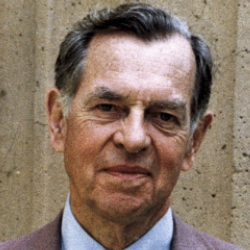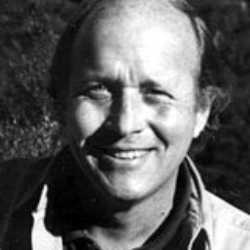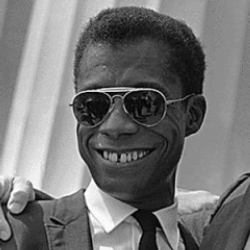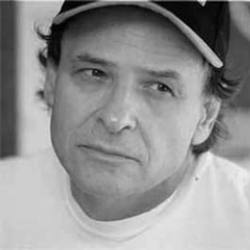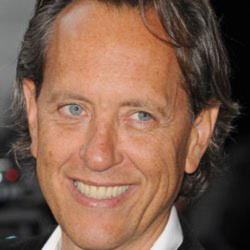Martha Beck Quotations
Martha Beck Quotes about:
-
-
-
-
-
-
-
-
-
-
-
Attraction Quotes
Once we're willing to confront our emotional suffering, we begin making choices based on attraction instead of aversion, love instead of fear. Where we used to think about what was 'safe,' we now become interested in doing what seems right or fun or meaningful or ripe with possibilities.
-
-
-
Anger Quotes
Self-pity, a dominant characteristic of sociopaths, is also the characteristic that differentiates heroic storytelling from psychological rumination. When you talk about your experiences to shed light, you may feel wrenching pain, grief, anger, or shame. Your audience may pity you, but not because you want them to.
-
Based Quotes
All mental hygiene is based on the core practice of doing nothing. Most of us are good at wasting time, staring at the wall while telling ourselves we should be working. We call this doing nothing, but our brains are furiously active. We think constantly, and our thinking is often rife with distress.
-
Aunt Quotes
Something in the human psyche confuses beauty with the right to be loved. The briefest glance at human folly reveals that good looks and worthiness operate independently. Yet countless socializing forces, from Aunt Clara to the latest perfume ad, reinforce beliefs like 'If I were pretty enough, I would be loved.'
-
-
-
-
-
-
Decision Quotes
Life is full of tough decisions, and nothing makes them easy. But the worst ones are really your personal koans, and tormenting ambivalence is just the sense of satori rising. Try, trust, try, and trust again, and eventually you'll feel your mind change its focus to a new level of understanding.
-
-
Aspects Quotes
One reason most people never stop thinking is that mental frenzy keeps us from having to see the upsetting aspects of our lives. If I'm constantly brooding about my children or career, I won't notice that I'm lonely. If I grapple continuously with logistical problems, I can avoid contemplating little issues like, say, my own mortality.
-
-
-
-
-
-
Dangerous World Quotes
When fear makes your choices for you, no security measures on earth will keep the things you dread from finding you. But if you can avoid avoidance - if you can choose to embrace experiences out of passion, enthusiasm, and a readiness to feel whatever arises - then nothing, nothing in all this dangerous world, can keep you from being safe.
-
-
-
-
-
-
-
Ancient Quotes
As I obsess about my ancient problems, I feel more like I'm sinking in quicksand than lighting a torch. I'm creating neither heat nor light, just the icky, perversely pleasurable squish of self-pity between my toes. My only defense is that I'm not the only one down here in the muck - our whole culture is doting on tales of personal tragedy.
-
-
-
-
-
Believe Quotes
Everything I've ever taught in terms of self-help boils down to this - I cannot believe people keep paying me to say this - if something feels really good for you, you might want to do it. And if it feels really horrible, you might want to consider not doing it. Thank you, give me my $150.
-
-
-
-
-
-
-
-
-
-
-
Spiritual Quotes
All religious leaders and spiritual teachers emphasize finding a place within us that is true. People who obsessively follow these leaders instead of their own purpose attach to the spiritual leader and become fanatical and controlling. That's why Jesus tried to tell his followers not to get attached to outward form.
-
-
-
Accepted Quotes
Much protective self-criticism stems from growing up around people who wouldn't or couldn't love you, and it's likely they still can't or won't. In general, however, the more you let go of the tedious delusion of your own unattractiveness, the easier it will be for others to connect with you, and the more accepted you'll feel.
-
Call Quotes
The great power of separating the watching mind from the thinking mind is that the watching mind is innately loving. Some call this part of the psyche the 'compassionate witness.' Sharing our difficult feelings with a compassionate witness is the crucial step that heals the infinite small wounds inflicted upon the soul by everyday life.
-
-
-
Abandon Quotes
Our ideas about love and attractiveness are so primal, our need for belonging so intense, that most of us are loath to abandon our favorite beliefs on these issues. If you've ever let yourself feel lovable and lovely, only to be deeply hurt, you may see accepting your own body as a setup for severe emotional wounding.
-
-
-
-
-
-
-
-
Thinking Quotes
Many of us have spent a lifetime trying to be what we’re not, feeling lousy about ourselves when we fail, and sometimes when we succeed. We hide our differences when, by accepting and celebrating them, we could collaborate to make every effort more exciting, productive enjoyable, and powerful. Personally, I think we should start right now.
-
-
Abandon Quotes
Ten years ago, I still feared loss enough to abandon myself in order to keep things stable. I'd smile when I was sad, pretend to like people who appalled me. What I now know is that losses aren't cataclysmic if they teach the heart and soul their natural cycle of breaking and healing.
-
-
-
-
-
-
Bad Quotes
What happens when we're willing to feel bad is that, sure enough, we often feel bad - but without the stress of futile avoidance. Emotional discomfort, when accepted, rises, crests, and falls in a series of waves. Each wave washes parts of us away and deposits treasures we never imagined.
-
-
-
-
-
-
-
-
-
-
-
-
-
-
-
-
-
-
-
-
Avoid Quotes
Our thoughts about an event can have a dramatic effect on how we go through the event itself. When our expectations are low, it's easy to be pleasantly surprised. When they're not, we're vulnerable to painful disappointment. Because of this, many people spend a good deal of effort trying to avoid developing high hopes about anything.
-
-
-
Attention Quotes
Sacred play is anything that takes you into that right hemisphere of your brain. It turns out that this move away from left to the right hemisphere, that sense of expansiveness and everything, can be accomplished through unusual rhythmic action, or any action that requires so much attention away from words that you cannot think in words.
-


